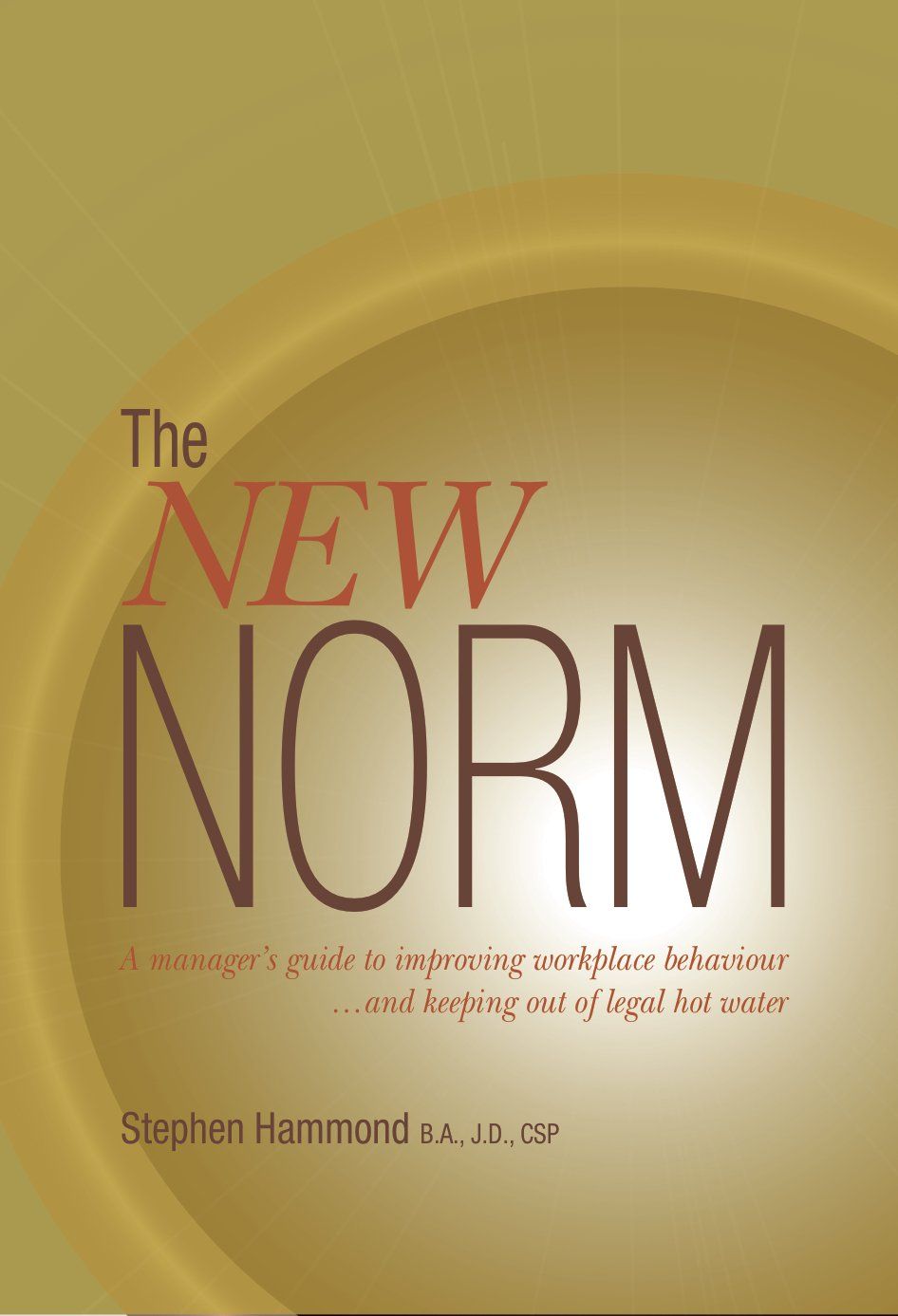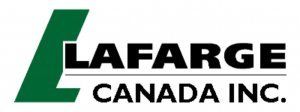Chapter Seven
THE NEW NORM has the guts to say things to a colleague's face
Sony Pictures Entertainment had its computers hacked in 2014 and the hackers threatened violence if the movie The Interview was released into movie theatres. That caused an enormous stir, going well beyond entertainment issues, to issues of American national security and censorship because it dealt with Korean President Kim Jong-un.
The same hackers made public the internal emails of Sony employees or associates making disparaging comments about stars like Angelina Jolie and racist comments about U.S. President Barack Obama.
In another workplace, far, far away from Hollywood, Bhaskaran Pillai knew something was going on because sometimes when he’d enter a room at work, the conversation would stop and the room would go silent. It turns out that despite his company putting on workshops about harassment, racist comments were being made behind his back at Lafarge Canada’s Earle Creek plant on the Sunshine Coast of British Columbia.
A co-worker told Pillai about the racist comments: slurs such as “spice monkey” and “raghead.” An open confrontation with another employee, during which he was called “Hindu bastard” and “spice monkey,” confirmed what his colleague had told him. And yet, with the exception of the one direct confrontation, all slurs had been made behind his back, a number of times in the presence of the general manager, Rick Wagner.
After Pillai was laid off from ten months of working with the company, he made a complaint to the B.C. Human Rights Commission, which went to a full hearing with the B.C. Human Rights Tribunal. A number of witnesses confirmed the derogatory comments were said behind Pillai’s back and also that the GM knew about them, or even took part in saying them.
Since Pillai had been the only dark-skinned person working at this open-pit gravel mine at the time, he was an easy target and the situation was a sign that the lessons about workplace harassment and discrimination weren’t being followed.
Perhaps if these employees had taken my Respectful Workplace online course, they would have known that harassment, bullying and racism behind someone’s back can still contribute to a poisoned and toxic workplace.
When this case was decided, neither lawyer could give the adjudicator precedents that answered the question of whether comments made behind someone’s back can be considered discrimination. By Canadian law, unwelcome comments of a racial nature are not sufficient for a finding of harassment/discrimination.
There have to be negative consequences in the workplace. However, as the evidence revealed, and as stated by the adjudicator, Mr. Pillai “did not give an outward display of outrage or emotion.” So where then were the “negative consequences?”
The adjudicator answered by saying that Pillai was “hurt inside.” “It clearly influenced his perceptions of his treatment at the workplace and caused him to view work events with suspicion. He perceived that he was the victim of a discriminatory plot, and this perception clearly adversely affected his work environment. In these circumstances, I find that the racial slurs produced a poisoned work environment, which constitutes discrimination for the purposes of the Code.”
Unfortunately, the company’s further defence was that it didn’t know anything about the slurs until it received the complaint from the commission. Yet the evidence was clear that a lot of people knew about the slurs, including the guy at the top, Wagner.
Even if management didn’t know about these slurs, the adjudicator wrote, “human rights jurisprudence has consistently found employers liable for the discriminatory acts of their employees, despite an absence of knowledge of the discrimination.”
As a species, we say many things behind the backs of others. If they are kind things, of course there’s no issue. But if the comments are not so kind, or involve unsubstantiated gossip, there is a problem. Given that most workplaces have incidences of gossip and hurtful comments, one wonders if it’s something we almost crave to do as a species.
After all, gossip magazines hog all the valuable real estate on the checkout stands in the grocery store. But when we’re at work, we’re expected to act better than the tabloids…and this case says that if we don’t, there may be serious consequences.
The OLD NORM
- will look around the room, being sly about what is said to which people, before starting harmful gossip.
- doesn’t have the nerve to say inappropriate things directly to a colleague’s face.
- will jump in right away with more hurtful gossip after hearing a colleague initiate some form of gossip.
- says, “I normally never say anything behind someone’s back, buuuut…”
The NEW NORM
- realizes that even negative comments not heard directly can be harassment and a form of discrimination.
- won’t initiate gossip about another person.
- knows the phrase, “If you haven’t got anything nice to say about anybody, come sit next to me” is strictly a joke, not words to live by.
- has better things to do with her time.
Suggestions for the New Norm:
01
Bite your tongue. It’s so easy to say things behind the backs of colleagues. You’re not a bad person because some unkind thoughts pop into your head. It happens to all of us. But you’re getting into “bad person” territory when you say unkind thoughts out loud.
02
Just worry about you. We think gossip is too big to tackle. It may be, but all you have to do is worry about what you say and do. Don’t take part in gossip or unkind comments and if someone wants to confide in you, politely say, “no thanks.” If others take your lead, soon the workplace gossiper will realize there’s no audience for those kinds of comments.
03
Perfection is not the goal. There may be times where we’re tempted to say things behind someone’s back. We’re human. Instead, be open with people. When they have done something wrong that bothers you, or affects you, it rarely does any good to tell someone else. The best route is to have a direct conversation with the person. Sometimes we think it won’t help. Maybe it won’t. But we don’t know that unless we are up-front with people, giving them a chance to change.
This chapter
lets you know that racist remarks, even said behind someone’s back, can still be
racial discrimination and a violation of the law.
For more examples of other forms of workplace discrimination, consider reading
Chapter 18: The New Norm won’t misuse social media while working.
Purchase a copy of The New Norm, or if you think all your supervisors and managers, could learn many valuable lessons about creating a respectful workplace, free of harassment, bullying and discrimination, you can get volume discounts.
What one reader has to say about Stephen’s book, The New Norm
“When I got up early this morning and headed for my computer here at home, I told myself, ‘Just skim read a few sections of Stephen’s book and get a note back to him.’ I couldn’t do that, Stephen. I read it all – every word. You have taken too long to write this book – Employees and Employers in Canada need to read this.
Stephen will capture your attention in highlighting up to date and interesting headlines which we all have an opportunity to learn from. If you believe you can simply skim read this book, think again! The mesmerizing case studies will leave you yearning to learn the conclusion as any great author should do for their readers. Sincere attention to the messages here can only result in best practices within Canadian workplaces.”
Melinda Heidsma
Executive Director, AiMHi, Prince George Association for Community Living

Respectful Workplace Online Training Course
If you, your employees or your managers want more information,
sign up for my new online training course:
The Respectful Workplace in Canada.
With 10 modules of useful, relevant and current information,
this course can help everyone at your workplace.
This may be the best online harassment training your people will get.
Stephen Hammond is a lawyer turned speaker and consultant in the field of harassment, sexual harassment, bullying, discrimination, diversity and inclusion at work.
The New Norm is Stephen’s third book.





